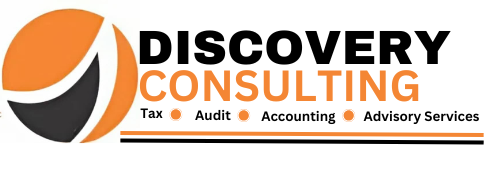NAVIGATING WITHHOLDING TAX IN NIGERIA
A COMPREHENSIVE GUIDE FOR BUSINESSES
Withholding Tax (WHT) is an important part of Nigeria’s tax system. It helps the government collect taxes on time and fight tax evasion. WHT means that tax is deducted directly from certain transactions. While this concept is simple, applying it can be complicated for businesses due to changing rules. This guide makes WHT easier to understand. It points out common challenges and explains how companies can stay compliant while managing their tax responsibilities effectively.

What is Withholding Tax?
Withholding Tax is not a separate tax; it is an advance payment of income tax. This tax is taken directly from payments for certain goods and services. The amount taken is sent to the tax authority, either the Federal Inland Revenue Service (FIRS) or the State Internal Revenue Service (SIRS). This amount counts as a credit against the final tax the recipient owes. This process helps the government collect taxes effectively and reduces tax evasion.
Key Transactions Subject to Withholding Tax
WHT applies to a wide range of transactions, each with its applicable rate. Below are some of the key transactions and their corresponding rates as outlined in the Deduction of Tax at Source (Withholding) Regulations 2024:
- Dividends, Interest, and Royalties – 10% for both resident and non-resident recipients.
- Rent, Hire, or Lease – 10% across the board.
- Commission, Consultancy, and Professional Fees – 5% for individuals and 10% for companies. Non-residents are subject to a higher rate of 10%, which serves as the final tax.
- Supply of Goods or Materials – 2% for residents, with no rate specified for non-residents.
- Construction Services – 2% for residents and 5% for non-residents, reflecting the lower margins in the construction industry.
- Directors’ Fees – 15% for residents and 20% for non-residents, aligning with the Personal Income Tax (PIT) rates.
- Winnings from Lotteries, Gaming, and Reality Shows – 5% for residents and 15% for non-residents, effective from October 1, 2024.
These rates are subject to change based on specific tax regulations and agreements, so businesses must stay updated to ensure compliance.
Compliance Requirements for Withholding Tax
To comply with WHT regulations, businesses must adhere to the following steps:
- Deduct the Applicable WHT: Identify transactions subject to WHT and apply the correct rates.
- Remit the Deducted Tax: Remit the deducted amount to the relevant tax authority within the stipulated timeframe. For FIRS, remittance must be made by the 21st day of the following month. For SIRS, the deadlines vary depending on the type of tax.
- Obtain a WHT Credit Note: After remittance, businesses must obtain a credit note, which serves as proof of remittance and can be used to offset future tax liabilities.
- Maintain Proper Records: Accurate record-keeping is essential to avoid penalties and ensure smooth audits.
Common Challenges in WHT Compliance
Despite its benefits, WHT compliance poses several challenges for businesses:
- Complexity in Application: Determining which transactions are subject to WHT and applying the correct rates can be confusing, especially for businesses with diverse operations.
- Delayed Remittances and Penalties: Late remittance of WHT attracts penalties and interest, increasing the financial burden on businesses.
- Difficulty in Claiming Credit Notes: Many businesses struggle to obtain and utilize WHT credit notes, leading to overpayment of taxes.
- Administrative Burden: Managing WHT deductions, documentation, and remittances requires robust internal controls and efficient processes.
- Cross-Border Transactions: International transactions involving WHT require careful consideration of tax treaties and regulations, adding another layer of complexity.
How Businesses Can Simplify WHT Compliance
Navigating the complexities of WHT requires expertise and precision. Here are some strategies businesses can adopt to simplify compliance:
- Leverage Technology: Automating WHT processes can streamline deductions, remittances, and record-keeping, reducing the risk of errors and delays.
- Seek Professional Advice: Engaging tax consultants can help businesses stay updated on regulatory changes and ensure accurate application of WHT rates.
- Maintain Accurate Records: Proper documentation of all transactions subject to WHT is crucial for audits and dispute resolution.
- Timely Remittances: Adhering to remittance deadlines helps avoid penalties and interest charges.
How Discovery Consulting Can Help
At Discovery Consulting, we understand the challenges businesses face in managing WHT compliance. Our tailored solutions are designed to help businesses stay compliant while optimizing their tax position. Here’s how we can assist:
- Tax Compliance and Advisory: We provide expert guidance on the correct application of WHT rates, ensuring timely remittances and accurate record-keeping.
- WHT Credit Note Recovery: We assist businesses in obtaining and utilizing WHT credit notes, preventing unnecessary tax overpayments.
- Automation & Process Optimization: Our team helps integrate WHT management into accounting systems, streamlining deductions and remittances.
- Audit & Dispute Resolution: Facing a tax audit or dispute? Our professionals provide representation and negotiation support to resolve WHT-related issues smoothly.
Withholding Tax is a vital part of Nigeria’s tax system, ensuring proper revenue collection and tax compliance. However, its complexities can pose significant challenges for businesses. By partnering with Discovery Consulting, businesses can simplify WHT compliance, minimize risks, and maximize tax efficiency. Our expertise ensures you remain compliant while focusing on growing your business.
Stay ahead in tax compliance—let Discovery Consulting help you navigate WHT effortlessly. Contact us today to learn more about our services and how we can support your business in achieving tax excellence.
